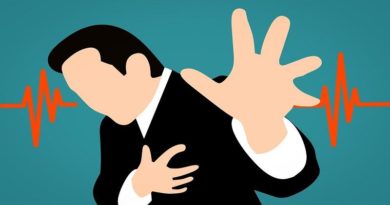Worst Foods That Trigger Menopausal Issues
While some women seem to have few issues or discomforts during menopause, there are others who experience a range of uncomfortable symptoms. Hot flashes, night sweats, mood swings and a host of other possible symptoms are reported. The intensity can range from mild to severe and even debilitating for some.
Every woman will experience menopause differently and in her own way. Those who find the quality of life compromised are looking for a way to ease the symptoms and resume their normal enjoyment of life. By understanding which foods can contribute to the increase in frequency and intensity of the symptoms of menopause, there is a higher likelihood that these issues can be better controlled through proper diet and avoidance of the triggers.
Foods that can trigger hot flashes and night sweats during menopause
Any food that raises the body temperature is a suspected trigger during menopause. Oven hot or spicy foods and beverages can help contribute to the intensity and frequency of hot flashes and night sweats. Alcohol raises the body temperature, so in as much as is possible, it should be limited or avoided altogether. Instead of going for an alcoholic beverage, some healthy options may include a cool smoothie that is made of real fruit. This can give you an added boost of healthy energy, especially when the weather is hot outside.
Foods that can increase your risk of disease during menopause
Obesity is one of the leading factors along with age, which increases the risk of developing cardiovascular issues and certain cancers during and after menopause. Maintaining a healthy body weight is a key factor in reducing these risk factors. Eating a healthy and balanced diet, therefore, becomes essential to cutting the risks.
Foods that are the most dangerous include those high in saturated fats. These can be found in fatty meats, full-fat dairy products, whole milk cheeses and a wide variety of the pre-made products that are purchased at the grocery store. Healthy alternatives are lean meats and proteins, low-fat dairy products and even soy alternatives.
Carbohydrate control
Overeating or large portions of carbohydrates such as pasta, white bread, potatoes and rice can lead to obesity. Instead, substitute white bread and pasta for whole grain versions of these products and keep your serving sizes within the recommended range. In addition to this, brown rice may be used instead of traditional white rice. If you prefer not to make substitutions, just watch your portion control. Your heart will thank you for it.
The dangers of sugar
Sugar has been compared to alcohol and tobacco because it sends similar signals to the brain and is highly addictive. Studies have shown that an excessive amount of sugar in the diet will contribute to the increased risk of death due to heart disease. In addition to this, it causes the liver to produce higher amounts of harmful fats that are released into the bloodstream.
Salt and blood pressure
Salt is another dangerous food when used in excess. While some sodium is necessary for the body to continue to function normally, too much can lead to high blood pressure. Common foods such as bacon, ham, deli meats and a host of other prepared foods are high in sodium (salt).
Education
By learning to read labels for the ingredients that are unhealthy, it becomes easier to cut back on the amounts that are taken into the body. Avoiding saturated fats, sugar, salt and empty calories can increase the odds of living a longer and much healthier life.
Conclusion
There are several different foods that can increase your risk of developing serious or even life-threatening health complications. Sugar, salt, fats and alcohol are some of the worst culprits for contributing to heart disease, diabetes, obesity, high blood pressure and hardening of the arteries. Fatty meats should be replaced with lean proteins.
Eating a healthy and balanced diet is important, but moderating the serving sizes is also important. This is particularly urgent as a woman enters menopause or else this could lead to possible complications during menopause.
As women enter menopause, the body slows down in the speed at which it burns calories, making becoming overweight a very real threat. By at least lessening the amount of certain foods or avoiding dangerous foods that are eaten during menopause can help to lessen the chances of serious illness down the road.




